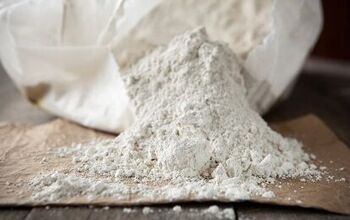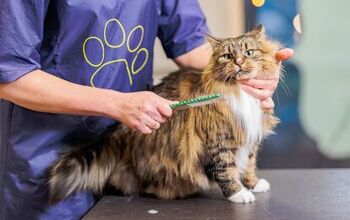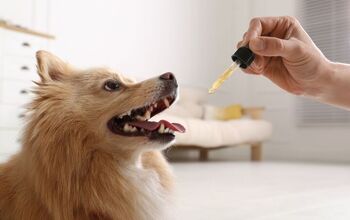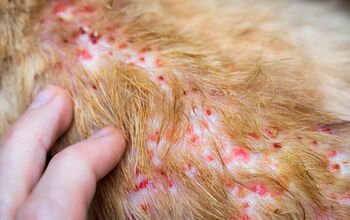The Benefits Of Probiotics For Dogs

Probiotics are “good bacteria” that live in your dogs (and your) digestive system. These microorganisms can counter the harmful bacteria and yeast that can often be found in the GI tract, especially when there’s an underlying health issue. The balance between the two is, in most cases, easily kept by a healthy body, but in case something is amiss, your pet’s system will require external help to boost the levels of good bacteria in his gastrointestinal tract. Enriching their diet with probiotic foods can help, especially in milder cases, and stomach-soothing foods such as pumpkin and yogurt can help natural gut probiotics replenish their numbers. Similarly, dog probiotic supplements come more than handy in these cases, as they are designed to quickly build up the colonies of beneficial bacteria in your pet’s gut.
Most canines already have a range of friendly gut flora in their system but, even in those cases where there are no apparent digestive issues, there’s no harm in giving a probiotic supplement to help build a strong colony of good bacteria. These beneficial bacteria can provide a whole host of health benefits for your four-legged friend.
Related: Gluten Allergies And Intolerance In Dogs
What Are the Main Health Benefits of Probiotics?
The main role of dog probiotics is to support your pet’s digestive health and boost their immune system in the process. The presence of good bacteria in your pet’s GI tract has plenty of other benefits, though. A healthy GI tract is a good foundation for your pet’s overall health, and introducing dog probiotics into their diet can lead to a host of benefits, including:
- Relieving yeast infections and yeast-related skin issues
- Helping to reduce bad breath
- Fostering healthy digestion
- Helping to reduce unpleasant gas odors and reduce gas in general
- Supporting a stronger immune system
- Helping stop diarrhea, constipation and loose stools
- Providing relief and treating a range of digestive issues such as irritable bowel syndrome or intestinal inflammation
Related: Top 10 Natural Supplements For Dogs
Are Probiotics Good for Dogs With Gastrointestinal Issues?
Since probiotics increase the health of your pup’s digestive system, any pooch with GI issues can really benefit from receiving a probiotic supplement. Supplementing with probiotics can go a long way to help dogs with conditions such as irritable bowel syndrome or inflammatory bowel disease. Even if your canine companion hasn’t been diagnosed with a gastrointestinal issue, but suffers from frequent bouts of diarrhea or constipation, probiotics could help. That said, if your pooch does suffer from such symptoms, you should have a vet rule out any underlying medical issues.
It is also important to note that not all types of probiotics for dogs are potent enough to treat gastrointestinal issues- some are meant for preventive use only. while some plain pumpkin puree could soothe an upset tummy, chances are that it won’t be enough to help your pet get his IBS or inflammation. Studies have shown that certain strains of good bacteria are beneficial to pets, and it’s these particular ones you need to look for when buying dog probiotics:
- Lactobacillus acidophilus
- Lactobacillus rhamnosus (strain GG)
- Enterococcus faecium (strain SF68)
- Bacillus coagulans
- Bifidobacterium animalis (strain AHC7)
Regrowing Good Bacteria
Although dogs should be able to maintain a good level of friendly bacteria, there are times when these bacteria colonies may be depleted, and this is when your pooch especially needs to be given probiotics. One of the main times that your dog may have an unbalanced digestive system is after a course of antibiotics, as these drugs target bacteria in your dog’s system, but don’t differentiate between good and bad kinds. Other reasons why your pooch might be lacking in good bacteria include old age, a poor diet, a low immune system, stress or exposure to pesticides and other chemicals. Regardless of the reason behind it, it is crucial to make sure that your pet’s gut flora isn’t overtaken with bad bacteria. There are plenty of ways to do that, luckily- it will all depend on your preferences and how severe the depletion is.
The best way to quickly and efficiently repopulate your pet’s gastrointestinal system with beneficial bacteria is to introduce them back through with high-quality dog probiotic supplements. Choose between those that can be offered as a treat, such as Bernie’s Perfect Poop, or go for powdered formula or liquid formulas that can be masked with food if your pet’s picky with his treats and meals. Depending on the formula you pick, you can see serious improvement in a matter of days, both in your pet’s digestion and their overall behavior.
And if you’re trying to be proactive and just want to make sure your pets healthy bacteria are thriving, you might prefer using natural probiotic foods such as yogurt, buttermilk, kefir, bananas, flaxseed and others.
Are There Any Potential Problems With Giving Probiotics to Dogs?
In general, probiotics aren’t harmful, the only issue is that they’re normally not regulated. As such, veterinarians recommend that you discuss the use of probiotics with them, so that they can approve the particular brand that you’re using or advise you which type might be suitable for your dog. Probiotics can also be an issue if your dog suffers from an autoimmune disease, as they can cause too much stimulation to the immune system and cause further issues.
In most cases, probiotics aren’t necessarily an essential supplement for your precious pooch, but there are times when they’re likely to be of major benefit, for instance after a course of antibiotics. There is genuine scientific merit to probiotic supplements, so it’s definitely worth considering whether or not your dog would benefit from taking them, either on a regular basis or now and again to boost gut health. Just make sure you pick those that are made for dogs specifically- your pet can’t use supplements you use. There are plenty of trusted brands to choose from, though- and many different formulas that are designed to target specific issues.

Lauren Corona is a freelance writer from merry old England. She specializes in writing about dogs and other critters. Lauren lives near Oxford, with her gorgeous Doberman, Nola. When she's not tapping away at the keyboard, you'll find her walking in the woods with Nola-dog, raising money for the Oxfordshire Animal Sanctuary, cooking vegan food, making zines and writing about herself in the third person.
More by Lauren Corona























